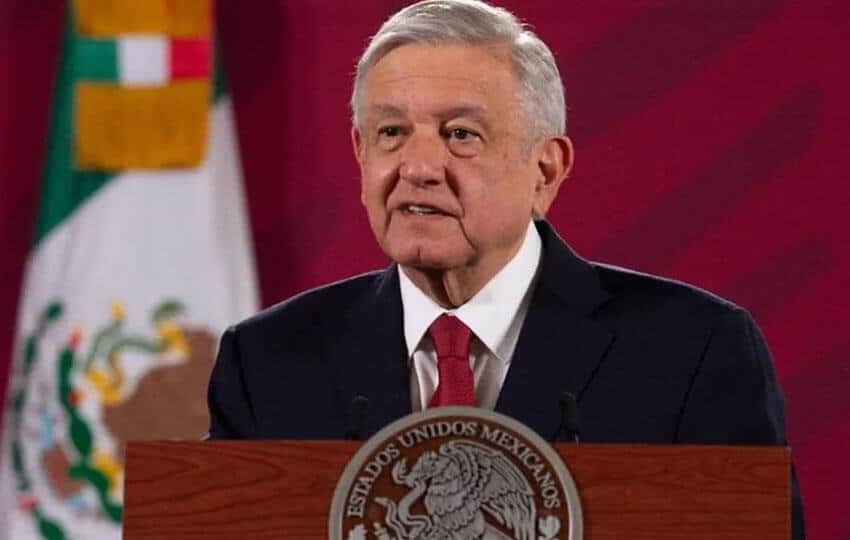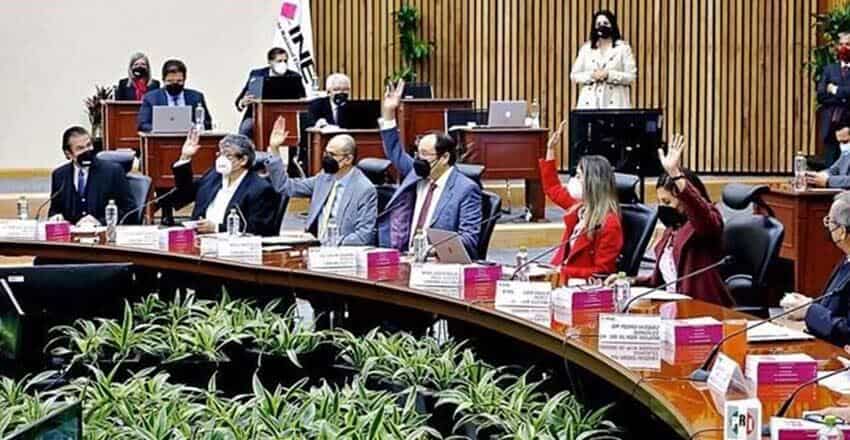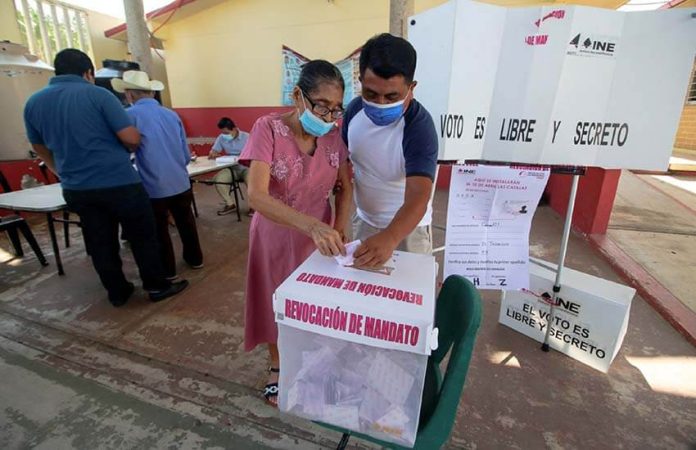President López Obrador is proposing a sweeping overhaul of the country’s election apparatus, in a move that analysts said would damage democracy and hand his party greater control of the voting system.
The proposed constitutional reform bill, which will be sent to Congress on Thursday, would dissolve the country’s National Electoral Institute (INE), which oversees the conduct of elections. If the bill is passed, INE would be replaced by a less-well-funded, directly elected body.
The president also wants to cut public funding to political parties and loosen electoral propaganda rules, in moves that critics said would be likely to benefit his Morena party. Since he was elected in 2018, López Obrador’s critics have feared he would move to try to stay in office beyond the one-term, six-year limit or concentrate power, although the highly popular president has said he will step aside in 2024.
“It’s seeking to ensure that he does not have to pass on the presidential sash to an opposition president,” said Arturo Sarukhán, a former Mexican ambassador to the United States.

Analysts believe the reform, which also slashes the number of federal and local lawmakers, is unlikely to be approved in its current form but is a signal of what the president could try to achieve through other means, such as budgets, appointments and secondary legislation.
The president’s party and its coalition partners have majorities in both houses of Congress, and Morena is on track to hold more than half of regional governorships by the end of the year.
“There is no intention to impose a single party. What we want is for there to be an authentic, true democracy in the country and to end electoral fraud,” López Obrador said on Thursday.
Mexico had one-party rule for more than 70 years before the opposition National Action Party (PAN) won in 2000. The INE’s credibility has taken decades to build, and it is now one of the most trusted institutions in the country, according to the national statistics agency INEGI.
López Obrador’s criticism of the electoral authority dates back to the 2006 presidential election, when he narrowly lost and claimed there had been fraud.
In presenting the reform to the media, the government claimed it would create more than $1 billion in savings that could be spent on social programs and infrastructure. Under the proposal, INE would be replaced by the National Institute of Elections and Consultations (INEC). Board members and electoral tribunal magistrates would be chosen by popular vote.
Mexico’s opposition has said that the president’s preference for direct democracy, including a recent recall referendum on his position, benefits the incumbent and allows him to reinforce his will through low turnout votes. The bill comes at a tense moment in Mexican politics, a week after lawmakers rejected a controversial energy reform proposal that worried the private sector and the U.S. government.

Morena has threatened criminal complaints against opposition deputies who voted it down.
Copyright The Financial Times Limited 2022. All rights reserved.
